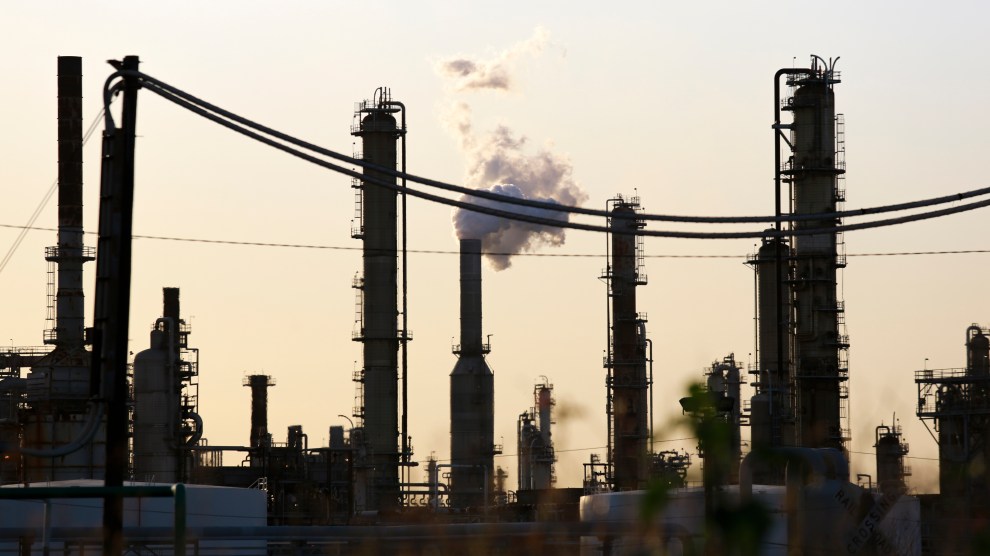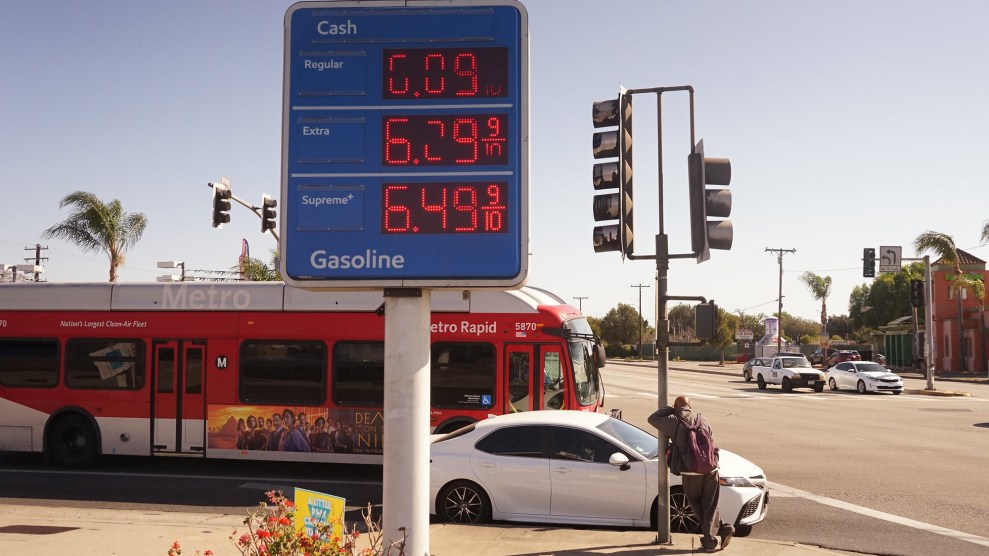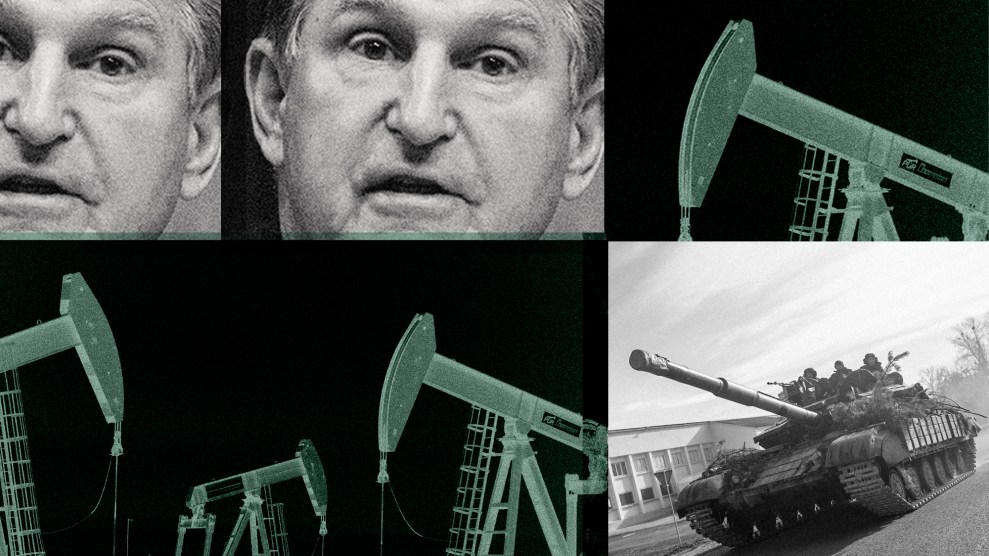
Reginald Mathalone/NurPhoto/Zuma
President Joe Biden made waves last year when he announced a moratorium on new oil and gas leases on federal lands, fulfilling a pledge he made during the 2020 campaign. To environmentalists’ despair, Biden is now reversing course: On Monday, the Interior Department will issue sales notices for drilling leases on 144,000 acres of public land.
Those leases will come at a price, though. For the first time in about a century, the amount that fossil fuel companies have to pay the government will increase significantly, with royalties climbing from 12.5 percent to 18.75 percent.
When it comes to drilling, the Biden administration is stuck between a rock and a hard place. As the war in Ukraine raises gas prices, the president is facing political pressure to ease Americans’ pain at the pump. At the same time, fossil fuel emissions are dangerously heating the earth, and new leases will hinder Biden’s goal to cut emissions to half of 2005 levels by 2030.
The Interior Department is quick to point out that the amount of land being opened for drilling is 80 percent less than what the industry asked for. But environmental groups say that any drilling on public land is too much. As my colleague Tom Philpott wrote last month, Big Oil has used the war in Ukraine as an excuse to encourage more drilling here in the States—even though it’s unlikely that new leases will bring down gas prices in the short term. And there’s a better way. “If building out new oil infrastructure will take years,” he writes, “why not instead use the crisis as a spur to build out green energy in the United States and Europe?”
The Biden administration had previously tried to auction off new offshore drilling leases, saying it was forced to do so by a recent court decision (though another judge halted the move earlier this year). But the upcoming sales will mark the first time Biden’s Interior Department issues new onshore drilling leases. “It’s important that they’re raising royalty rates,” Earthjustice president Abigail Dillen told the Washington Post. “But ultimately, oil and gas leasing at any significant scale is incompatible with the Paris agreement.”
















